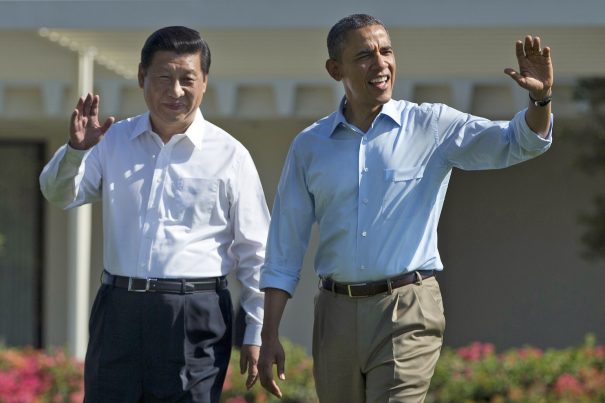
U.S. preparing sanctions against China over cyber thefts
Monday, September 28, 2015 by usafeaturesmedia
http://www.nationalsecurity.news/2015-09-28-u-s-preparing-sanctions-against-china-over-cyber-thefts

(Cyberwar.news) The Obama Administration is preparing new sanctions against China over the latter’s cyber theft of U.S. data ahead of a planned visit to Washington by Chinese President Xi Jinping, The Washington Post reported.
The unprecedented package of economic sanctions would be levied against Chinese companies and individuals who have benefited from Beijing’s cyber theft of valuable U.S. trade secrets, the Post reported.
The administration has yet to decide whether it will issue these sanctions, but a decision is expected soon – and could even come within the next few weeks, according to several administration officials who spoke to the Post on condition of anonymity.
The sanctions would be a major expansion of the White House’s public response to a rising wave of cyber-espionage and theft by hackers based in China, whom Obama Administration officials say have stolen everything from the design of nuclear power plants to search engine source code and the confidential negotiating positions of energy companies.
And, as NationalSecurity.news has reported, China’s cyber theft has also included data on tens of millions of former and current U.S. government and intelligence community employees and agents from computers maintained by the Office of Personnel Management (OPM).
Also, there is already tension between Washington and Beijing over the latter’s maritime claims in the South and East China Seas and China’s recent move to devalue its currency following its recent stock market plunge.
However, the two countries have deep trade ties and at times the administration has been wary of being too tough on China.
Still, the potential the new sanctions will be levied show the amount of increased frustration among many in the administration over China’s incessant hacking of American systems.
The sanctions would stem from an order signed by President Obama in April in which he established authority to freeze financial and property assets, as well as bar commercial transactions with individuals and firms overseas that engage in cyber theft and destructive attacks in cyberspace.
The White House declined to comment on specific sanctions, but a senior administration official, speaking generally, said: “As the president said when signing the executive order enabling the use of economic sanctions against malicious cyber actors, the administration is pursuing a comprehensive strategy to confront such actors. That strategy includes diplomatic engagement, trade policy tools, law enforcement mechanisms, and imposing sanctions on individuals or entities that engage in certain significant, malicious cyber-enabled activities. The administration has taken and continues to introduce steps to protect our networks and our citizens in cyberspace, and we are assessing all of our options to respond to these threats in a manner and timeframe of our choosing.”
Administration and intelligence community officials readily acknowledge that China is not the only foreign power engaging in cyber espionage and theft, but they also say Beijing is the most active, with China-based economic espionage cases rising significantly last year.
In addition to the OPM breach, U.S. intelligence officials say there is evidence that China’ Ministry of State Security is combining hacked information with medical data stolen in January from U.S. health insurance giant Anthem as well as passenger records taken from United Airlines servers in May.
Publicly, the Obama Administration has refrained from blaming China directly, but officials privately admit that evidence points to Beijing as being culpable, the Times reported.
Defense Secretary Ashton Carter said the U.S. needs to dramatically improve its cyber defense capabilities because the military is so dependent upon data systems.
“We’re not doing as well as we need to do in job one in cyber, which is defending our own networks,” Carter said. “Our military is dependent upon and empowered by networks for its effective operations…. We have to be better at network defense than we are now.”
See also:
Tagged Under: Tags: China, cyber theft, cybersecurity, foreign relations, hacking, United States






